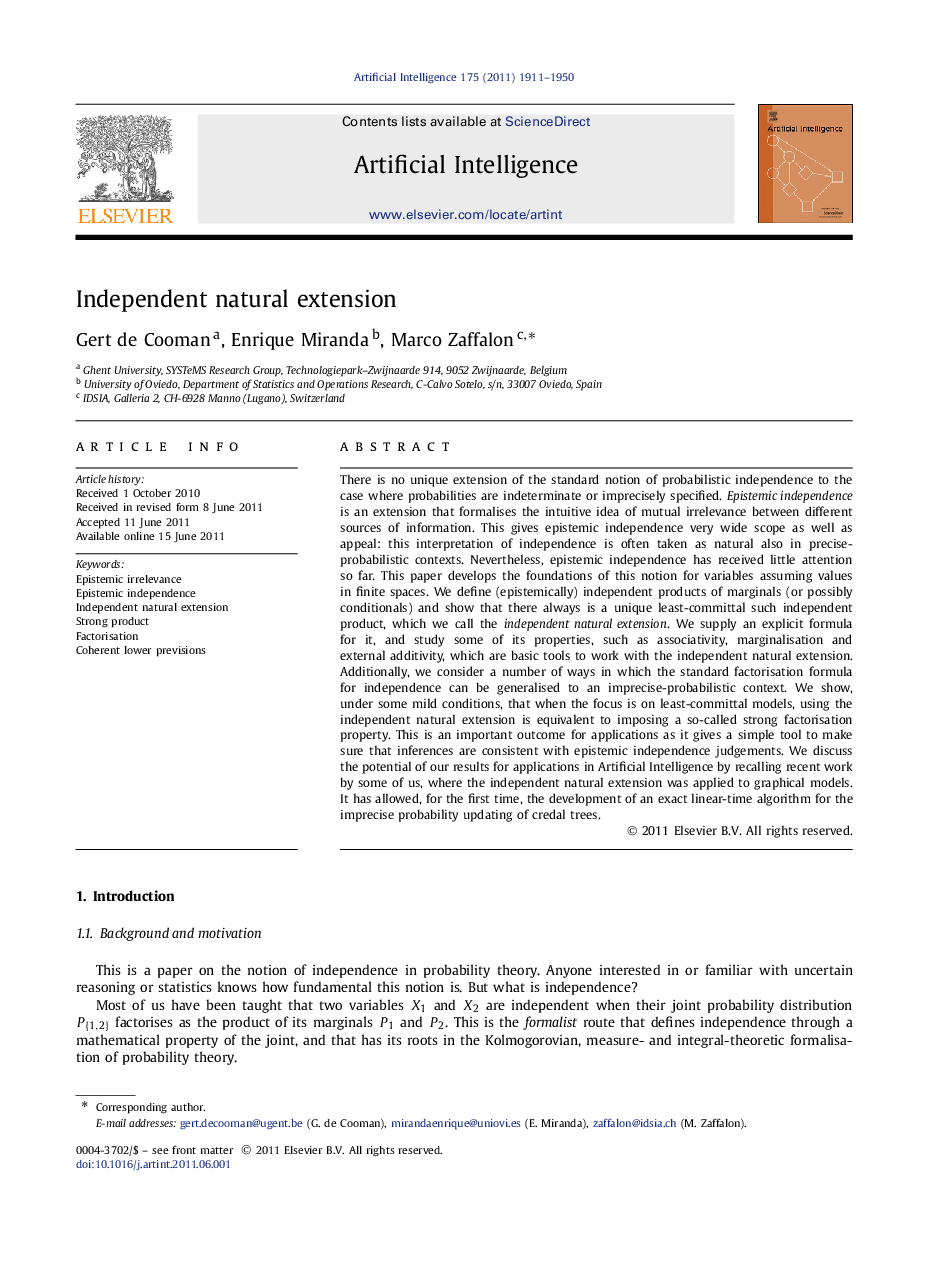| کد مقاله | کد نشریه | سال انتشار | مقاله انگلیسی | نسخه تمام متن |
|---|---|---|---|---|
| 377064 | 658363 | 2011 | 40 صفحه PDF | دانلود رایگان |

There is no unique extension of the standard notion of probabilistic independence to the case where probabilities are indeterminate or imprecisely specified. Epistemic independence is an extension that formalises the intuitive idea of mutual irrelevance between different sources of information. This gives epistemic independence very wide scope as well as appeal: this interpretation of independence is often taken as natural also in precise-probabilistic contexts. Nevertheless, epistemic independence has received little attention so far. This paper develops the foundations of this notion for variables assuming values in finite spaces. We define (epistemically) independent products of marginals (or possibly conditionals) and show that there always is a unique least-committal such independent product, which we call the independent natural extension. We supply an explicit formula for it, and study some of its properties, such as associativity, marginalisation and external additivity, which are basic tools to work with the independent natural extension. Additionally, we consider a number of ways in which the standard factorisation formula for independence can be generalised to an imprecise-probabilistic context. We show, under some mild conditions, that when the focus is on least-committal models, using the independent natural extension is equivalent to imposing a so-called strong factorisation property. This is an important outcome for applications as it gives a simple tool to make sure that inferences are consistent with epistemic independence judgements. We discuss the potential of our results for applications in Artificial Intelligence by recalling recent work by some of us, where the independent natural extension was applied to graphical models. It has allowed, for the first time, the development of an exact linear-time algorithm for the imprecise probability updating of credal trees.
Journal: Artificial Intelligence - Volume 175, Issues 12–13, August 2011, Pages 1911-1950